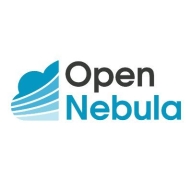


OpenNebula and AWS Control Tower both compete in the cloud management sector. AWS Control Tower seems to have the upper hand due to its comprehensive service offering and integration within the AWS ecosystem.
Features: OpenNebula offers open-source customization and management of private and hybrid clouds with a focus on simplicity. It provides flexible user management, supports various hypervisors, and has a strong community for support. AWS Control Tower is known for its automation in setting up AWS accounts, management guardrails, and comprehensive management of multi-account environments.
Room for Improvement: OpenNebula could enhance its technical documentation and expand its integrations. Its reliance on community support might not suit enterprises needing immediate assistance. AWS Control Tower could improve in simplifying its cost structure and enhancing integration with non-AWS services. Fine-tuning its configuration processes to be more user-intuitive would also be beneficial.
Ease of Deployment and Customer Service: OpenNebula is easy to deploy and manage, suited for organizations seeking simplicity. Its community-based support might require more technical expertise. AWS Control Tower offers streamlined deployment with centralized management and comprehensive AWS customer support, making it suitable for enterprises requiring reliable service.
Pricing and ROI: OpenNebula presents an economical option with a potentially higher ROI for businesses minimizing upfront costs. AWS Control Tower involves higher initial investment due to its extensive features and enterprise support but provides strategic ROI through increased efficiency and reduced operational overhead for AWS-integrated users.



IBM Turbonomic offers automation, planning, and right-sizing recommendations to streamline resource management, improve efficiencies, and optimize costs across virtualized environments and cloud platforms.
IBM Turbonomic is valued for its capability to optimize resource allocation and monitor virtual environments efficiently. It facilitates automated decision-making in VM sizing, load balancing, and cost optimization for both on-premises and cloud deployments. Users can leverage insights for workload placement, ensure peak performance assurance, and effectively right-size across VMware and Azure. The ongoing transition to HTML5 aims to improve visual and navigational ease, while expanded reporting features are anticipated. Opportunities for improved training, documentation, and integrations enhance platform usability and functionality.
What Are the Key Features?In finance, IBM Turbonomic aids in maintaining platform efficiency during market fluctuations. Healthcare organizations leverage its capability for resource optimization during high-demand periods to enhance patient care support. Retailers use it for planning in peak seasons, ensuring resources align with fluctuating demand to maintain performance continuity.
AWS Control Tower offers the easiest way to set up and govern a new, secure, multi-account AWS environment. It establishes a landing zone that is based on best-practices blueprints, and enables governance using guardrails you can choose from a pre-packaged list.
OpenNebula provides the most simple but feature-rich and flexible solution for the comprehensive management of virtualized data centers to enable private, public and hybrid IaaS clouds. OpenNebula interoperability makes cloud an evolution by leveraging existing IT assets, protecting your investments, and avoiding vendor lock-in.
OpenNebula is a turnkey enterprise-ready solution that includes all the features needed to provide an on-premises (private) cloud offering, and to offer public cloud services.
We monitor all Cloud Management reviews to prevent fraudulent reviews and keep review quality high. We do not post reviews by company employees or direct competitors. We validate each review for authenticity via cross-reference with LinkedIn, and personal follow-up with the reviewer when necessary.